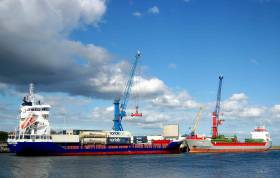Displaying items by tag: Masterplanning: Blueprint 2050
#Blueprint2050 - A masterplanning process was announced by Drogheda Port Company to address the key issues on the future development of the port where this weekend the Irish Maritime Festival (9-10 July) takes place.
The plan, Blueprint 2050, is a vision for the development of Ireland’s largest regional port and which sets outs a logistical and socio-economic role from 2016 to 2050. This in order to promote and support the provision of new port services and employment for the region.
Mr Paul Fleming CEO of Drogheda Port stated ‘In preparing our masterplan we will be consulting with all interested stakeholders in the coming months to fully harness the potential that the port can offer to boost job creation and ensure worthwhile employment opportunities. Our objective is to be a world class regional port and economic generator.’
The Co. Louth port is currently a key contributor to the economy of the north east region, supporting up to 1,000 jobs and to underpin the regional economy. The masterplan requires the ability to adapt and grow to continue in assisting the development of the overall region. In addition as a key driver to attracting new Foreign Direct Investment and high value manufacturing industry.
The masterplan will look at the wider opportunities around and outside traditional port tradeflows by looking into the upstream and downstream supply chains. Also that the port is enabled to handle both larger vessels and increased trade volumes efficiently and competitively.
























































